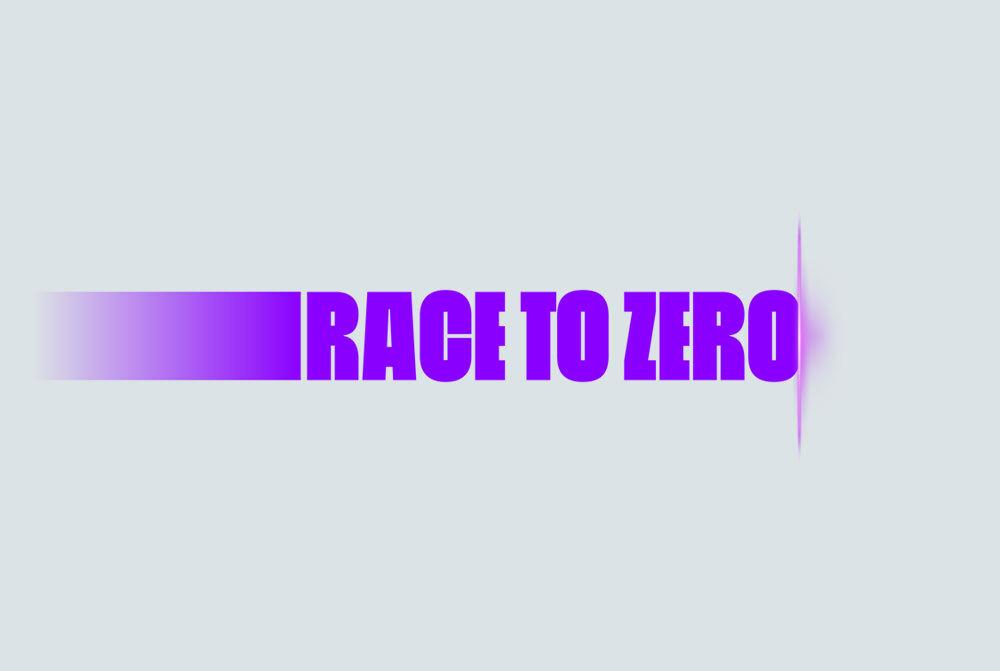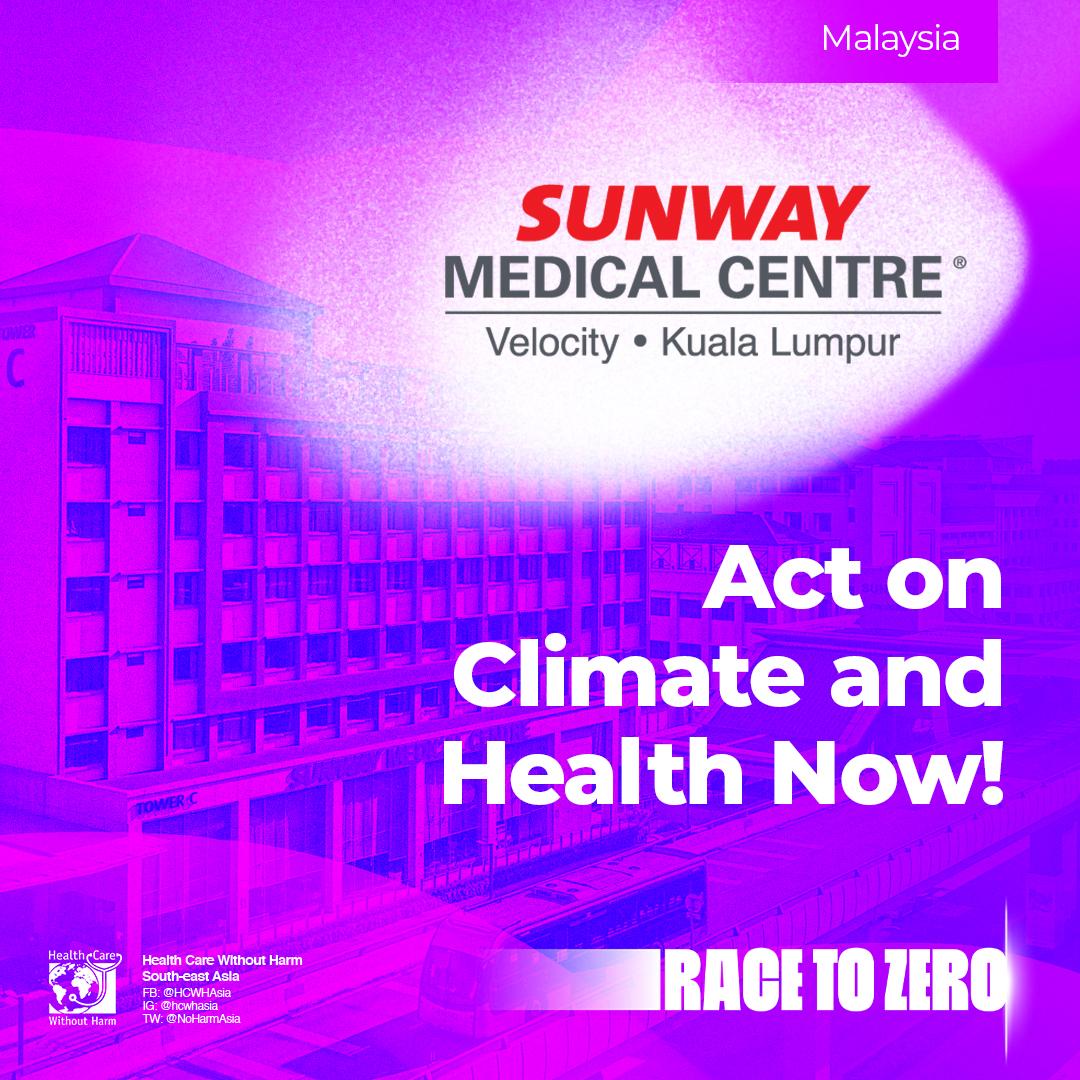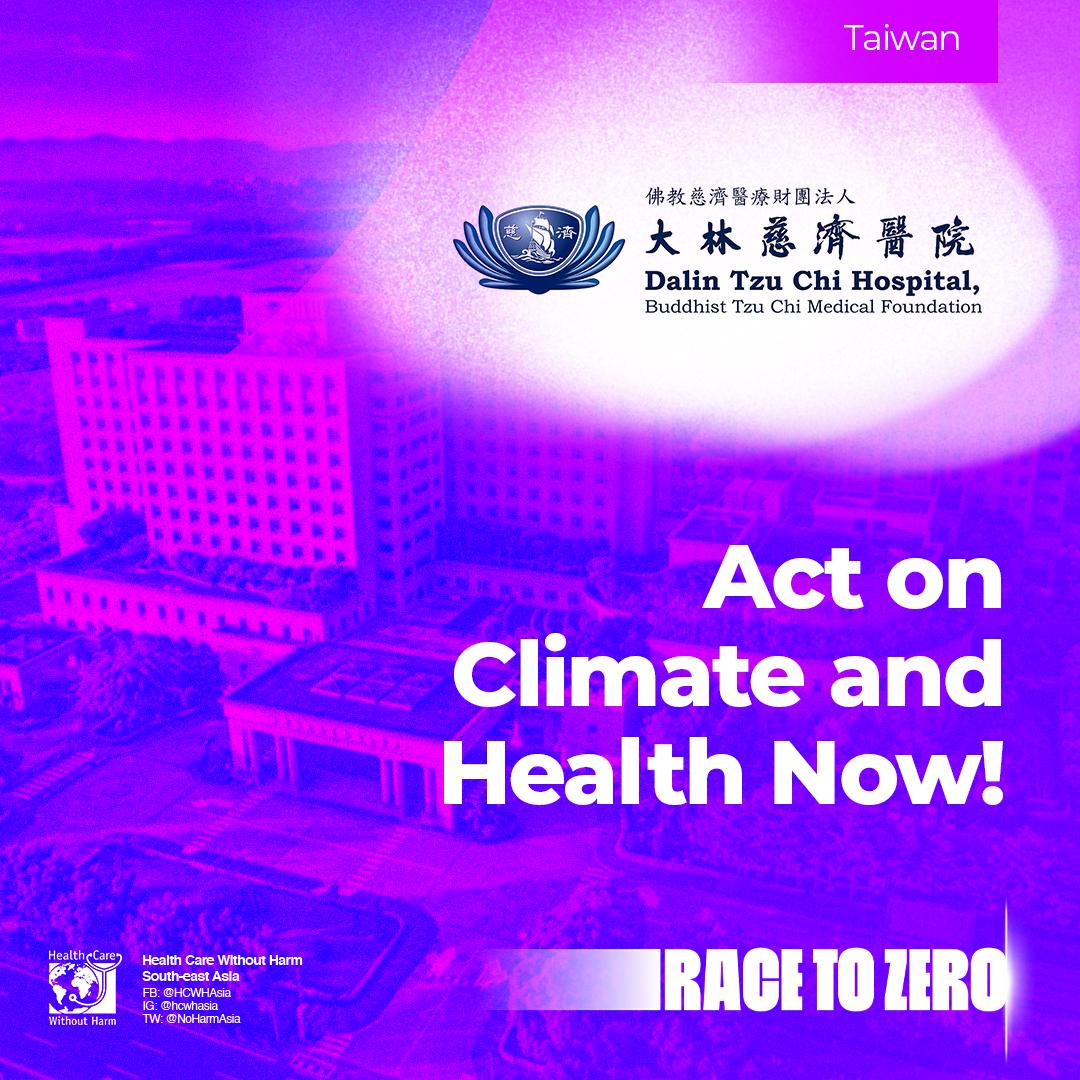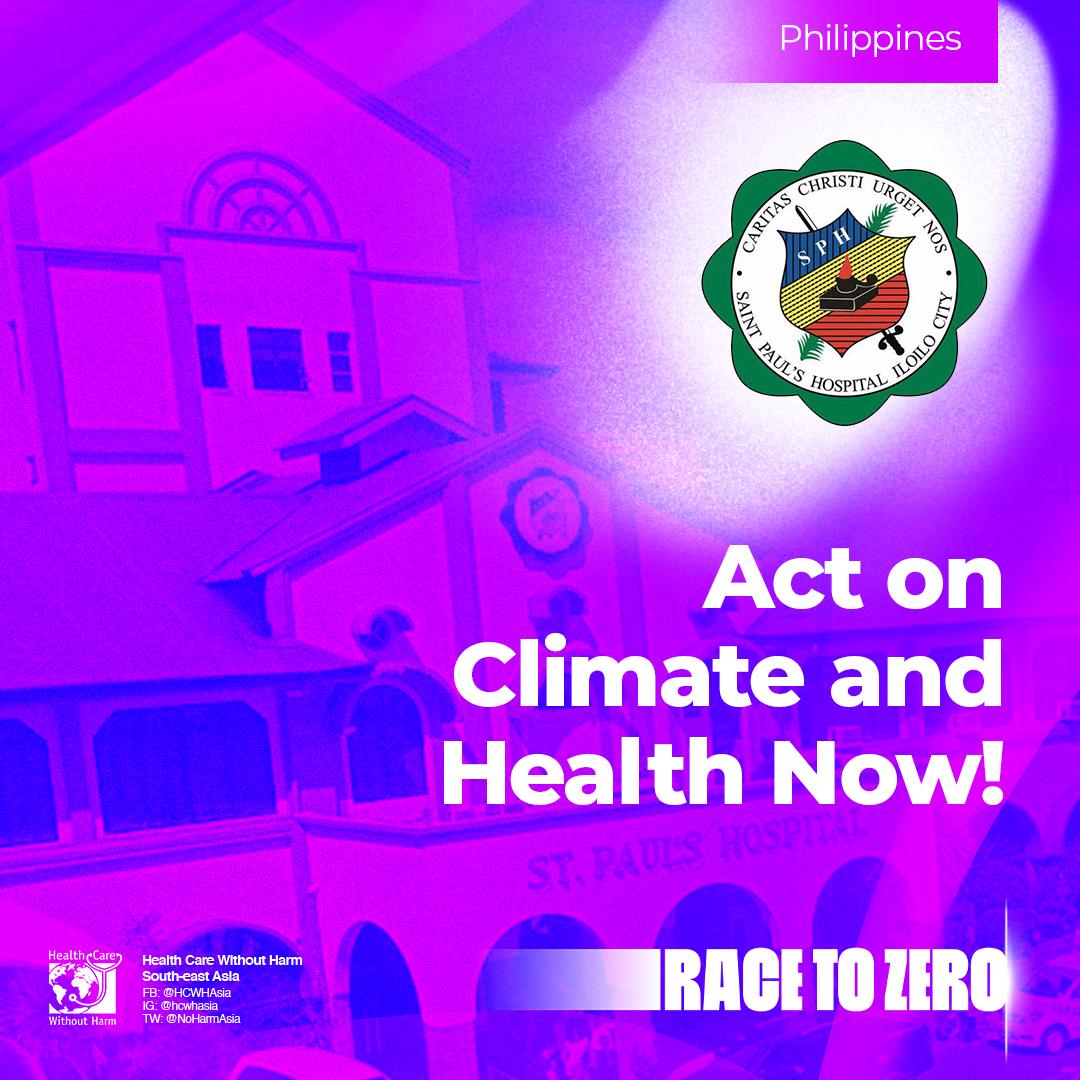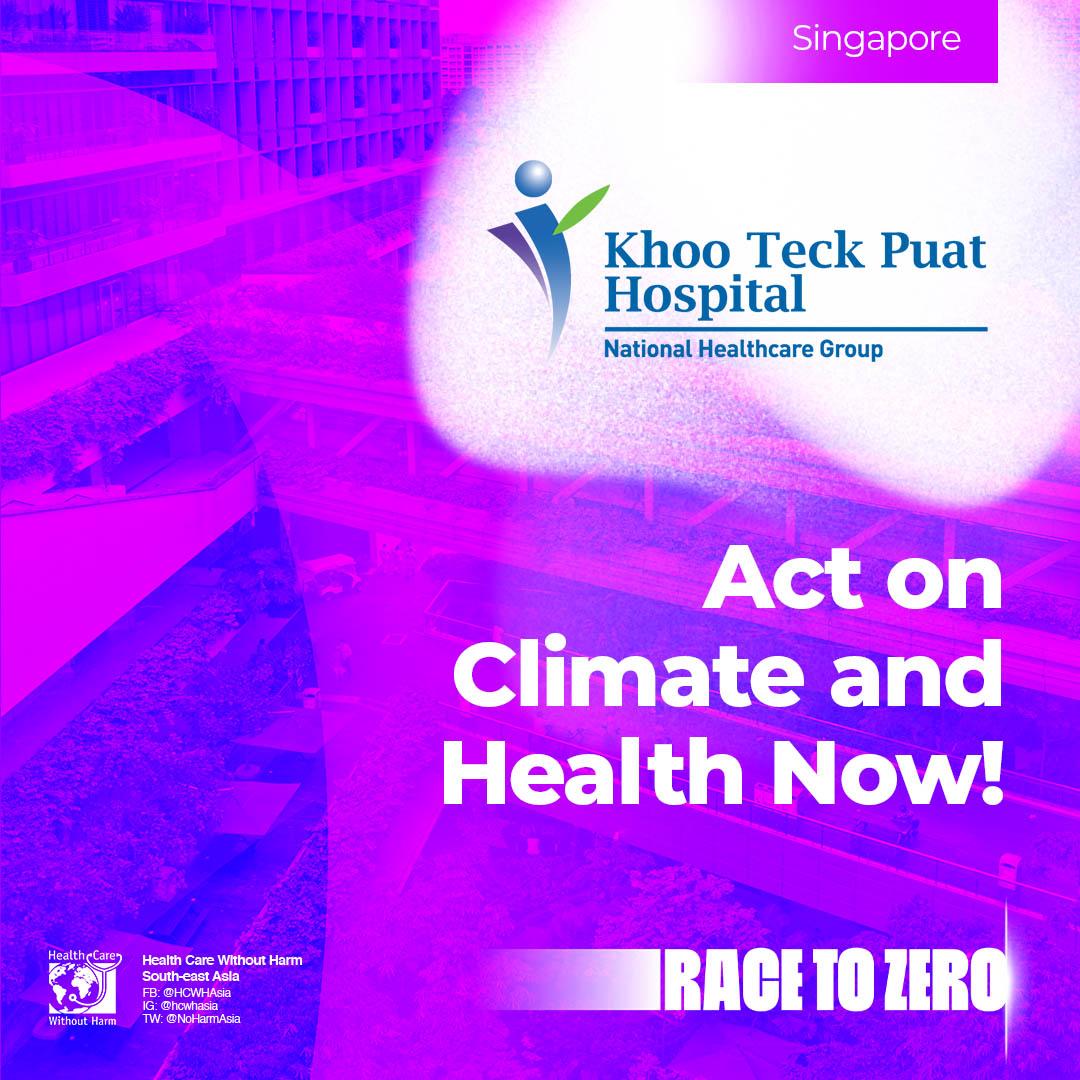Sunway Medical Centre Velocity in Malaysia, Dalin Tzu Chi Hospital in Taiwan, St. Paul’s Hospital Iloilo in the Philippines, and Khoo Teck Puat Hospital in Singapore join the 50 health care systems representing more than 11,500 hospitals and health centers from 21 countries committing to achieve net zero emissions before 2050
Health Care Without Harm, the official Race to Zero health care partner, today announced that over 50 health care institutions, collectively representing more than 11,500 health care facilities in 21 countries, are part of the UN-backed Race to Zero campaign. In joining the Race to Zero, these organizations commit to achieving net zero emissions by 2050. They become part of the largest ever alliance outside of national governments committed to delivering a zero-carbon world in line with the Paris Agreement.
The health care organizations in Race to Zero include institutions ranging from individual public and private hospitals and health systems to entire provincial or state government health departments. In recent weeks several large health systems have signed on to this vital commitment. Stepping up for healthcare climate action, health facilities in South-East Asia joins the race to avert the climate crisis and save lives. This includes Global Green and Healthy Hospital (GGHH) Network members in the region; namely Sunway Medical Centre Velocity in Malaysia, Dalin Tzu Chi Hospital in Taiwan, St. Paul’s Hospital Iloilo in the Philippines, and Khoo Teck Puat Hospital in Singapore.
“It’s exciting to see the momentum of health care organizations worldwide join the Race to Zero. All health organizations, large and small, can accelerate the transition to a healthier, sustainable, and more equitable world,” said Gonzalo Muñoz, UN High Level Climate Champion.
“Sunway Medical Centre Velocity (SMCV) pledges commitment to the Race to Zero because we strongly believe in the values that this movement espouse. Aligned to Sunway's very own Sustainable Development Goals, SMCV is committed to a better and sustainable future environment.” Said Mr. Derrick Chan Kum Keong, CEO of Sunway Medical Centre Velocity KL in Malaysia.
Mr. Derrick adds, “With this commitment, our hospital/health system will not only join the global movement towards a healthier climate but also calls for a safer environment and life for the future generation.”
For Dr. Ming-nan Lin, Vice Superintendent at Dalin Tzu Chi Hospital, Tzu Chi Medical Foundation, Taiwan expresses that, “Dalin Tzu Chi Hospital pledges commitment to the Race to Zero because climate change brings challenges for hospitals health care professionals including damage to infrastructure, limited access to essential services, increased patient loads. On the other hand, health care services will produce toxins, medical waste produce and large amount of greenhouse gas which contribute significantly to climate change.”
Dr. Lin adds that, “With this commitment, our hospital will not only join the global movement towards a healthier climate but also go hand in hand with our partners to make green action a daily practice.”
From the Philippines, St. Paul’s Hospital of Iloilo Inc., "pledges commitment to the Race to Zero because we want to promote healthy and sustainable environment as an expression of our love and respect to our Almighty God who fashioned us to be responsible stewards of all His creations treating all as family. Likewise, this will be our legacy to the next generation, a healthy planet nurtures a healthy community." said Sr. Arcelita Sarnillo, SPHI's Hospital Administrator.
Sr. Arcelita adds that, "with this commitment, our hospital will not only join the global movement towards a healthier climate but also be a passionate advocate of pursuing initiatives and explore possibilities in order to reduce/eliminate carbon emissions like organizing bikers club, greening the environment, utilizing renewable energy and taking option for energy efficient equipment. We believe, we educate and entice our stakeholders and collaborators to adapt these practices and become catalysts of promoting healthy lifestyle and wellness aside from being able to economize. These will lead us towards deep communion with nature and holistic spirituality as a way of thanksgiving to God-the fountain and source of all graces, “Because all creatures are connected, each must be cherished with love and respect, for all living creatures are dependent on one another. Each area is responsible for the care of this family” Pope Francis, Laudato si # 42."
From Singapore, Khoo Teck Puat Hospital also pledges commitment to the Race to Zero, "because we treasure our planet Earth and want it to flourish with flora and fauna, with minimal depletion of our natural resources. With this commitment, our hospital will not only join the global movement towards a healthier climate but also go green, eat green and live green to reduce our carbon footprint and clean up our environment for the benefit of our patients, staff and the community at large. When our environment wins, mankind wins!" says Mr. Donald Wai Wing Tai, Director of KTPH's Hospital Planning and Infrastructure.
In the lead-up to COP26, Race to Zero health care leadership is part of a diverse and growing global health sector movement for climate action. National government ministries are making high-level commitments to health care decarbonization and resilience, while more than 45 million health professionals have called for aggressive action to protect people’s health from climate change.
“The climate crisis is a health crisis. It’s heartening that health care organizations worldwide are providing leadership to this crisis. They’re sending a strong message to governments to take climate action and protect public health by accelerating a transition away from fossil fuels”, Sonia Roschnik, International Climate Policy Director, Health Care Without Harm.
The health institutions have joined the Race to Zero through Health Care Without Harm’s Health Care Climate Challenge. The initiative aims to mobilize health care institutions worldwide to play a leadership role in addressing climate change through three pillars of mitigation, resilience, and leadership.
Health sector decarbonization is critical to reducing global emissions. Health Care Without Harm’s 2019 report shows that the sector’s climate footprint is equivalent to 4.4% of global net emissions, with the majority originating from fossil fuels used across facility operations, the supply chain, and the broader economy. To guide the sector's decarbonization, Health Care Without Harm's Global Road Map demonstrates how implementing seven high-impact actions can reduce global emissions by 44 gigatons over 36 years, equivalent to keeping more than 2.7 billion barrels of oil in the ground each year, and potentially saving more than 5 million lives by the end of the century. To realize this collective impact, Health Care Without Harm offers a suite of resources and collaboration platforms for health care institutions to measure, manage, and reduce their climate footprint. ###
About Health Care Without HarmHealth Care Without Harm works to transform health care worldwide so that it reduces its environmental footprint, becomes a community anchor for sustainability and a leader in the global movement for environmental health and justice.
About Race to Zero
Race to Zero is the UN-backed global campaign rallying non-state actors – including companies, cities, regions, financial and educational institutions – to take rigorous and immediate action to halve global emissions by 2030 and deliver a healthier, fairer zero carbon world in time. All members are committed to the same overarching goal: reducing emissions across all scopes swiftly and fairly in line with the Paris Agreement, with transparent action plans and robust near-term targets. Led by the High-Level Climate Champions for Climate Action – Nigel Topping and Gonzalo Muñoz – Race To Zero mobilizes actors outside of national governments to join the Climate Ambition Alliance, which was launched at the UNSG’s Climate Action Summit 2019 by the President of Chile, Sebastián Piñera.
